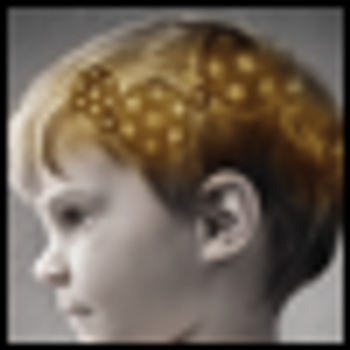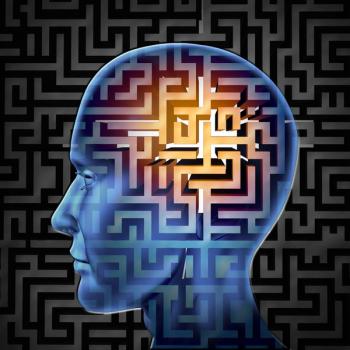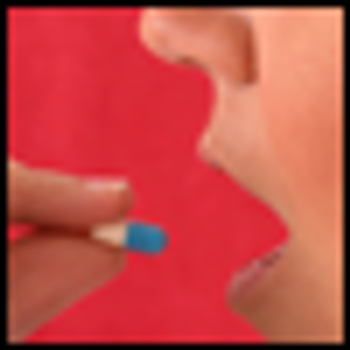
Child and adolescent psychiatry is in a position to inform the entire practice of general psychiatry in numerous other areas, including mood disorders, ADHD, and psychosis, as well as the topics...


Child and adolescent psychiatry is in a position to inform the entire practice of general psychiatry in numerous other areas, including mood disorders, ADHD, and psychosis, as well as the topics...

A recent article in the New York Times reports that doctors are prescribing stimulant drugs to compensate for the bad schools their child patients have to attend. Rates of ADHD have tripled in the last 15 years-precisely because many kids are being diagnosed with fake ADHD to make them eligible for medications and/or extra school services.

Boys with ADHD can present with different cognitive and behavioral patterns than girls with ADHD. Despite these factors, girls with ADHD remain at significant psychosocial risk into adulthood.

There is promising evidence that some complementary and alternative medicine therapies can alleviate ADHD symptoms. These may include herbals such as Bacopa and Pycnogenol, as well as supplements such as zinc.

Four studies sprang from the TORDIA trial on treatment-resistant depression in children and adolescents and showed that several factors influence treatment efficacy following treatment resistance.

Being male, female, or transgender exerts effects not only on anatomy and reproductive behaviors but also on immune mechanisms, pain perception, diet, occupation, social behaviors, and risk exposures.

A parent's heavy drinking can increase a child's risk of substance use disorder.

Seventy percent of antidepressants are prescribed by primary care doctors with little training in their proper use, under intense pressure from Big Pharma, drug salespeople, and misled patients, after rushed 7-minute appointments and subject to no systematic auditing. The cash-strapped FDA is beholden to industry for funding. And it gets worse.

Sleep changes associated with psychotropic drugs are common enough to justify routinely obtaining a baseline sleep diary before beginning treatment, even when the initial screening for sleep disorders indicates that no further investigation is needed.

In light of our problems and uncertainties about the state of current psychiatry, or perhaps because of them, what might describe good psychiatry? Following are some suggestions for what we, as psychiatrists, can do.

A video on ADHD and impulsivity from childhood to adulthood.

Ongoing shortages of several psychotropic medications have wreaked havoc among patients and their families, caused frustration and reluctant prescription switches among physicians, and prompted investigations by Congress.

ADHD has been significantly associated with a primary diagnosis of impulse control disorder and bipolar disorder and most commonly associated with social phobia and major depressive disorder. Details here. . .

Research suggests there are varying versions of ADHD, and like multiple subtypes of cancer, ADHD encompasses an entire family of disorders.

The paradigm for modern psychiatry is evidence-based medicine (EBM)-it represents proven treatments for defined diagnoses. But there are major problems with this position, starting with the fact that while they are superior to placebo, evidence-based treatments too often are ineffective.

In a recent interview on 60 Minutes, Harvard psychologist Irving Kirsch, PhD, commented, “the difference between the effect of a placebo and the effect of an antidepressant is minimal for most people.”

Agitated patients who display “excessive verbal and/or motor behavior”-can be loud, disruptive, hostile, sarcastic, threatening, hyperactive, and even combative. This article discusses new best practices and guidelines for agitation.

This discussion focuses on approaches to improve medication adherence, particularly in reference to helping adolescents remain on recommended psychopharmacological regimens when transitioning from acute to long-term maintenance.

This list serves as a guide when treating persons of diverse cultures and backgrounds.

The responsibility for improvement was placed on psychiatrists: diagnostic skills had to be improved and patients and their families and caregivers as well as the general public needed to be better educated about the disorder and treatment options.

Effective, early intervention and appropriate support for and treatment of the caregivers of these vulnerable children will improve short-term outcomes and also may provide positive lifelong benefits.

Each of the boys in question could meet criteria for the DSM-5 proposed criteria for Disruptive Mood Dysregulation Disorder (DMDD). But do you think that these presentations are all the same syndrome that share a similar neurobiological basis, family history, and response to treatment?

Charles Dickens might well say of American psychiatry, “These are the best of times and the worst of times.”

Dr Angell and others may be right to claim that we should be concerned about the current practice of psychiatry. But the simple fact that mental illnesses seem to be common is not one of them.

How often do insomnia and anxiety disorders coexist? And how best to treat patients with comorbid insomnia and anxiety? Answers here..